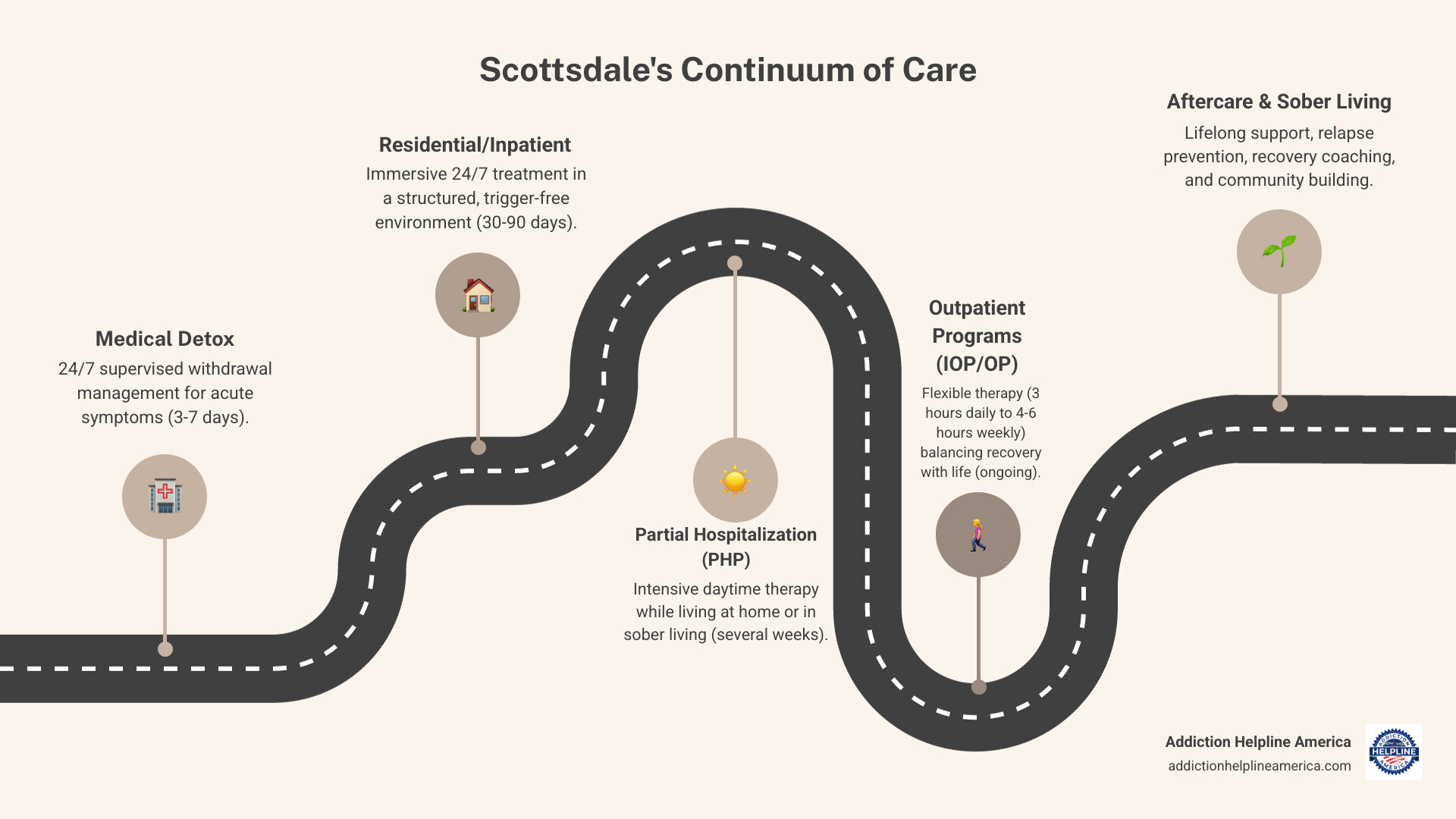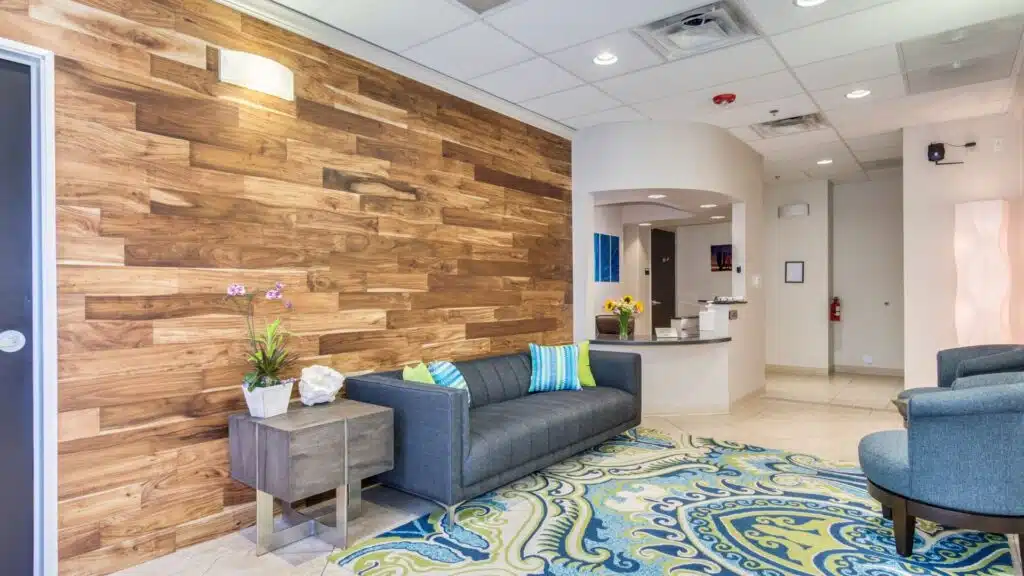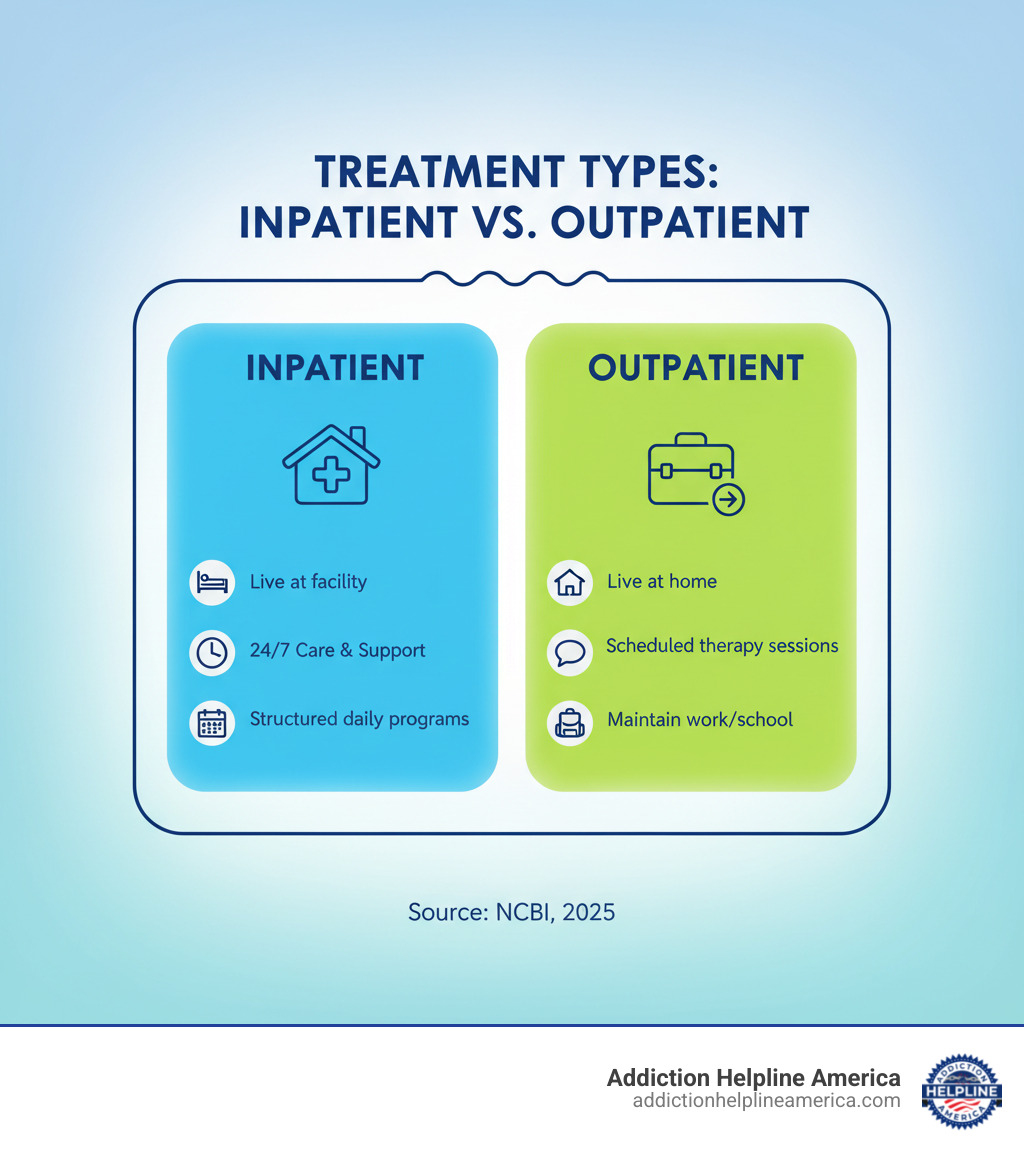
Finding Hope and Healing in Scottsdale
Substance abuse treatment Scottsdale offers a comprehensive range of options for individuals and families seeking recovery in a supportive, healing environment. Here’s what you need to know:
Top Treatment Options in Scottsdale:
- Medical Detox – Supervised withdrawal management with 24/7 medical care
- Inpatient/Residential Programs – Immersive 24/7 treatment for severe addiction
- Partial Hospitalization (PHP) – Intensive daytime treatment while living at home or in sober living
- Intensive Outpatient (IOP) – Flexible 3-hour daily sessions for ongoing recovery
- Outpatient Programs (OP) – 4-6 hours weekly counseling while managing daily life
- Dual Diagnosis Care – Integrated treatment for addiction and mental health disorders
- Medically-Assisted Treatment (MAT) – Medication support (Suboxone®, Vivitrol®) to reduce cravings
Scottsdale’s calming desert environment and sunny skies create a supportive backdrop for healing, making it a premier destination for substance abuse treatment. The city offers a full spectrum of care, from luxury residential facilities to affordable outpatient programs.
The statistics tell an important story: in Arizona, 16.7% of adults aged 18-25 have a substance use disorder, while 6.2% of adults 26 and older face similar challenges. These numbers represent real people who need help.
But recovery is possible. Scottsdale’s treatment centers combine evidence-based therapies like Cognitive Behavioral Therapy (CBT) with holistic approaches like yoga and equine therapy. Many facilities also specialize in treating co-occurring disorders, recognizing that conditions like anxiety and depression often accompany addiction.
At Addiction Helpline America, we connect individuals with effective substance abuse treatment in Scottsdale that matches their unique needs. We offer 24/7 support and nationwide referrals. This guide will help you understand treatment levels, insurance, and specialized programs to make an informed decision.

Substance abuse treatment Scottsdale vocabulary:
Navigating the Levels of Care for Substance Abuse Treatment Scottsdale
Recovery isn’t one-size-fits-all. Substance abuse treatment Scottsdale options follow a continuum of care, with different levels designed to meet you where you are. As you progress, you can step down to more independent levels of support. Scottsdale facilities offer personalized treatment plans that adapt to your recovery journey.
Medical Detoxification
Withdrawal can be a major barrier to seeking help, but medical detoxification provides a safe, supervised environment to manage it. Stopping certain substances abruptly can cause dangerous symptoms. In a detox setting, you receive 24/7 medical care to keep you comfortable and safe, with medications to ease withdrawal symptoms. Detox typically lasts 3-7 days and is the crucial first step that stabilizes your body for the therapeutic work of recovery.
Inpatient/Residential Treatment
Inpatient or residential treatment offers the most immersive care, where you live at the facility for 30, 60, or 90 days. This removes you from daily triggers and provides a 24/7 supportive and structured environment. It’s ideal for severe substance use disorder or if your home environment is unsupportive. Your days are filled with individual and group therapy, workshops, and other activities, allowing you to focus completely on building skills for lasting recovery.
Partial Hospitalization Program (PHP)
A Partial Hospitalization Program (PHP) balances intensive care with outpatient flexibility. You attend treatment for several hours a day, five days a week, but return home or to a sober living facility in the evenings. This step-down care is ideal for those transitioning from inpatient treatment or for individuals who need significant support but can live safely on their own. PHP provides structured daytime treatment, helping you stay accountable while gradually reintegrating into daily life.
Intensive Outpatient & Outpatient Programs (IOP/OP)
Intensive Outpatient Programs (IOP) and Outpatient Programs (OP) offer flexible care that fits around work, school, or family. IOP typically involves about three hours of treatment, three to five days a week, including group and individual therapy. Outpatient programs (OP) are less intensive, with four to six hours of counseling weekly, ideal for ongoing support. Both IOP and OP allow you to apply new coping skills in real-time, which builds genuine, lasting recovery skills.
Specialized Programs and Therapeutic Approaches

Effective substance abuse treatment Scottsdale goes beyond just stopping substance use; it treats the whole person—mind, body, and spirit. The best programs address the root causes of addiction by combining evidence-based and holistic methods for lasting change.
Addressing Co-Occurring Disorders: Dual Diagnosis
Addiction rarely exists in a vacuum. Many people with substance use disorders also face mental health conditions like anxiety, depression, or PTSD. This is known as a dual diagnosis or co-occurring disorder. Treating the substance use without addressing the underlying mental health issue often leads to relapse. That’s why integrated care is crucial. Many Scottsdale facilities specialize in this comprehensive approach, ensuring both conditions receive proper attention. Research supports this integrated model for comprehensive treatment plans for co-occurring disorders.
Evidence-Based and Trauma-Informed Therapies
Evidence-based therapies are treatment approaches backed by scientific research.
- Cognitive Behavioral Therapy (CBT) helps you identify and change negative thought patterns and behaviors linked to substance use.
- Dialectical Behavior Therapy (DBT) focuses on emotional regulation, mindfulness, and building healthier relationships.
- EMDR (Eye Movement Desensitization and Reprocessing) is a powerful therapy for processing trauma, which often lies at the heart of addiction.
These therapies are delivered through both individual and group counseling, providing personalized guidance and peer support.
Holistic and Alternative Therapies
Scottsdale treatment centers accept the mind-body connection with holistic therapies that nurture your whole self. These can include yoga and meditation to reduce stress and manage cravings, equine-assisted therapy to build trust and self-esteem, art therapy for creative expression, and nutritional counseling to support physical healing. Many local centers incorporate these enriching therapies into their programs.
Medically-Assisted Treatment (MAT)
Medically-Assisted Treatment (MAT) combines FDA-approved medications with counseling to treat substance use disorders, particularly opioid and alcohol dependence. Medications like Suboxone® and Vivitrol® are used under medical supervision to reduce cravings and prevent relapse. This is not replacing one addiction with another; it’s a medical treatment for a medical condition, giving your brain support while you engage in therapy. Many Scottsdale centers provide MAT, recognizing its effectiveness.
How to Choose the Right Treatment Center in Scottsdale

Choosing the right substance abuse treatment Scottsdale facility is deeply personal. This isn’t about finding “the best” center—it’s about finding the best center for you. Making an informed decision sets the foundation for your long-term success.
Accreditations and Licensing
Accreditations signal that a treatment center meets high quality and safety standards. When researching options, look for credentials from national organizations like The Joint Commission and CARF International. Also, verify that the facility is licensed by the Arizona Department of Health Services (ADHS). These credentials ensure oversight, accountability, and safe, effective care.
Insurance, Payment, and Affordability
The cost of treatment shouldn’t be a barrier. Many Scottsdale centers offer various payment options.
- Private Insurance: Most facilities accept private insurance, and PPO plans often cover a significant portion of the cost. Always verify your specific benefits.
- State and Federal Programs: Options like AHCCCS (Arizona Health Care Cost Containment System) (Arizona’s Medicaid) and the Substance Abuse Block Grant (SUBG) can help fund treatment.
- Other Options: Many centers offer private pay discounts, financing, or sliding-scale fees. Ask about all available payment avenues.
What to Look for in a Substance Abuse Treatment Scottsdale Facility
Beyond credentials and payment, consider these personal factors:
- Staff and Philosophy: Look into staff qualifications, client-to-staff ratio, and whether the program philosophy (e.g., 12-step, holistic) resonates with you.
- Environment and Amenities: The physical environment matters. Scottsdale offers everything from luxury facilities to more modest settings. Consider what will help you focus on healing.
- Specialized Programs: Look for programs custom to specific groups like veterans, LGBTQ+ individuals, or young adults. Gender-specific treatment can also provide a more comfortable environment.
- Continuum of Care: Choose a facility offering a full spectrum of care, from detox to aftercare, for seamless transitions.
At Addiction Helpline America, we provide personalized guidance to help you steer these choices. You don’t have to do this alone.
Beyond Treatment: The Importance of Aftercare and Ongoing Support

Completing a substance abuse treatment Scottsdale program is a major achievement, but recovery is an ongoing process. What happens after treatment is just as important as the program itself. Aftercare is the support system that helps you maintain your progress and prevent relapse.
The Role of Aftercare in Substance Abuse Treatment Scottsdale
Quality treatment centers begin aftercare planning from day one to prepare you for the transition back to daily life. Key components include:
- Relapse Prevention Planning: Working with your team to identify personal triggers and develop strategies to manage them.
- Continued Therapy: Ongoing individual or group counseling helps you process challenges as they arise.
- Recovery Coaching: This pairs you with a peer who has lived experience in recovery, offering guidance and support.
- Alumni Programs: Many facilities offer alumni programs to keep you connected to a supportive community through meetups and events.
Sober Living and Community
Sober living homes provide a supportive, transitional environment between residential treatment and returning home. These are structured homes where residents support each other in recovery through peer accountability.
Community support is also vital. 12-Step meetings like Alcoholics Anonymous (AA) and Narcotics Anonymous (NA) are free, widely available in Scottsdale, and offer crucial fellowship. Scottsdale’s vibrant recovery community also includes recovery-focused yoga, hiking groups, and volunteer opportunities, helping you build a meaningful life. With the right aftercare and community, lasting recovery is within reach.
Frequently Asked Questions about Scottsdale Rehab
When you’re considering substance abuse treatment Scottsdale, it’s normal to have questions. Here are some of the most common concerns we hear.
How long does addiction treatment typically last?
The length of treatment varies for each individual and depends on the severity of the SUD, co-occurring conditions, and personal progress. While many programs offer 30, 60, or 90-day options, effective recovery often involves moving through a continuum of care, from detox and residential treatment to outpatient support. The timeline is flexible and adapts as you grow stronger in your recovery.
What is the difference between a dual diagnosis and a co-occurring disorder?
The terms “dual diagnosis” and “co-occurring disorder” are interchangeable. They both refer to having a substance use disorder and a mental health disorder (like depression or anxiety) at the same time. These conditions often fuel each other, so treating them simultaneously is crucial for lasting recovery. Integrated care, which addresses both issues concurrently, significantly improves the chances of success.
Can my family be involved in my treatment?
Yes, family involvement is highly encouraged and is a powerful component of successful recovery. Addiction impacts the entire family, and many substance abuse treatment Scottsdale facilities offer family programs. Family therapy helps rebuild trust, improve communication skills, and educate loved ones about addiction as a disease. This helps create a supportive home environment for long-term sobriety.
Take the First Step Towards a New Beginning

Recovery is possible, and you’ve already taken a brave first step by exploring your options. Scottsdale’s healing desert environment provides a powerful backdrop for finding your strength. The substance abuse treatment Scottsdale facilities in this guide offer hope, community, and a chance to rebuild your life. Whether you need residential, outpatient, or specialized dual diagnosis care, there is a program that fits your unique needs.
At Addiction Helpline America, we connect people with the right treatment centers. We know this process can be overwhelming, which is why we offer free, confidential, and personalized guidance 24/7. You don’t have to figure this out alone. We’re here to listen and connect you with a program that matches your circumstances.
Recovery is about taking that first step. Let us help you find your new beginning.
Find a personalized recovery program today.
Your new beginning starts now.
Our helpline is 100%
free & confidential
If you or someone you care about is struggling with drug or alcohol addiction, we can help you explore your recovery options. Don’t face this challenge alone—seek support from us.
Programs
Resources
Will my insurance
cover addiction
treatment?
We're ready to help
Find the best
drug or alcohol treatment
center
Are you or a loved one struggling with addiction? Call today to speak to a treatment expert.












